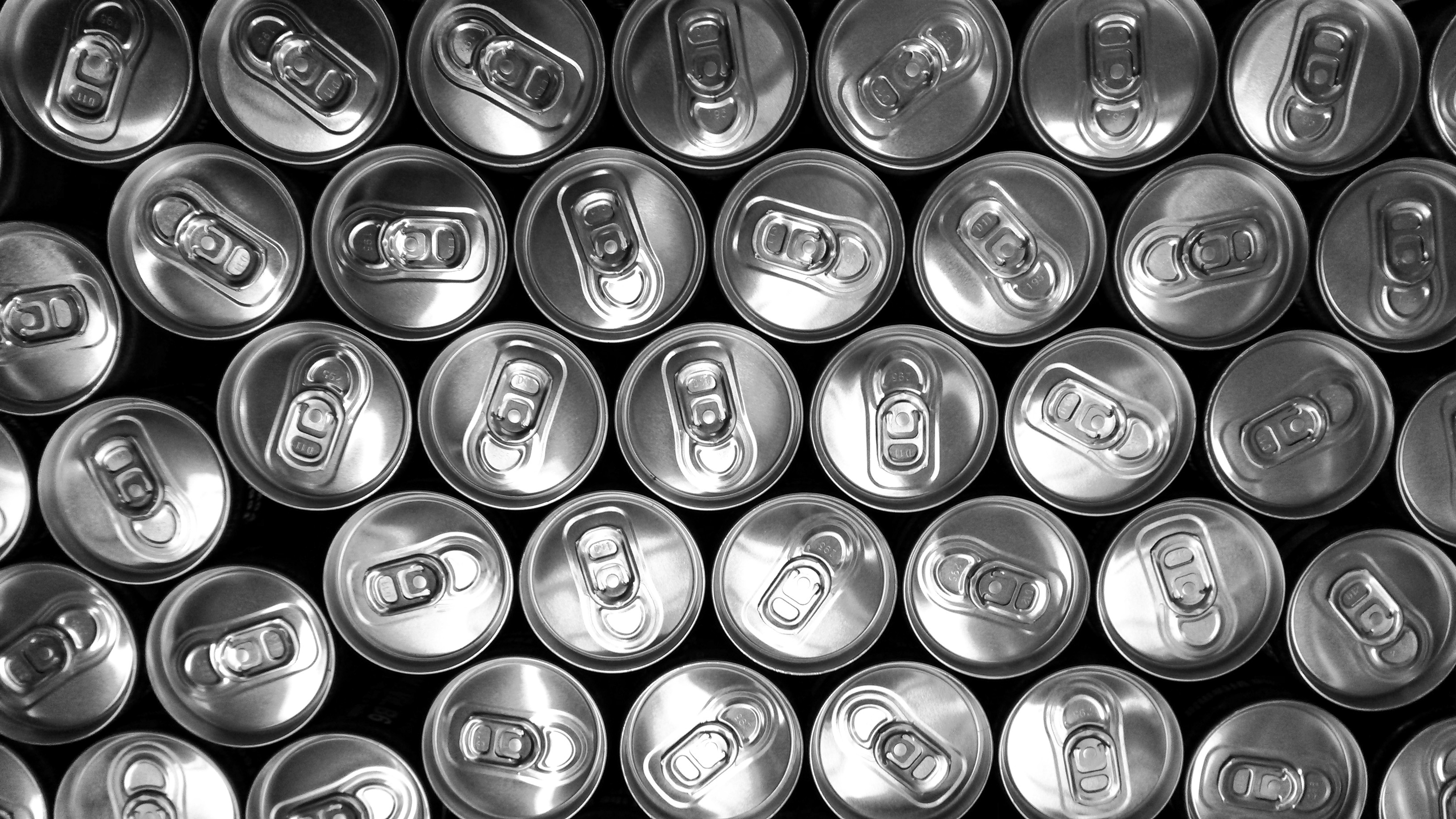by Sonja Steinbauer

“Whether jeans buttons, ceiling lights, beverage cans, coffee capsules, rooftops, cars or airplanes – aluminum is an integral part of our everyday lives. But what we always like to forget is that the raw material aluminum comes from the earth and its extraction strikes deep wounds in the landscape”, Global 2000 stated this year. Aluminium is the third most common element in the earth crust. It is an integral part of our everyday life and is used in construction industry, cosmetics or medicine. Nonetheless, this material has recently become the focus of critical investigations due to possible health risks or its mining conditions. This ambivalent views about aluminium were central in the STS-course “Science in Society Laboratories”. In the following poem, I describe the investigations my research group and I made during this seminar about aluminium and its implications concerning environment and health.
Aluminium, aliminium what a glittering material,
or just a killer in serial?
How to deal with it, how to cope,
is there any hope?
As this seems to be a rather complicated case, it
was often assessed,
and is here further addressed.
The theme was outspread through television,
science and news,
rightly, cause there are many connected issues.
Like possible health risks or environmental problems,
to name just some of them,
these are assessed further in this poem.
Let’s start by the Enviroment,
medial this topic is often completly absent.
Many indigenous people are threatened by mining,
companies,
experiencing personal tragedies.
Crop failure, polluted water and toxic bauxite are
problems going on,
in fact, to name just some.
But what do the companies do, what do they say,
to the people standing in their way?
We build you hospitals and give you streets,
but that’s not fitting to the peoples’ needs.
Communities not based on that,
causing social problems and therefore being a
threat.
Curing diseases they have caused,
their greed cannot even by NGOs or laws get
paused.
So there is only one thing to say,
dear companies, stop the greenwashing right away!
And the other ones to react are who,
or better said, what can we as consumers do?
Of course, less consumption means less production,
but the consumers reaction shouldn’t be the only
action.
Production processes in this case are very foggy,
and the consumer side alone really groggy.
National and international Actions need to be set,
so that goals concerning a better future can be met.
But the environment is not the only issue that needs
to be discussed,
giving an overview on possible health risks is a must.
Some say breast cancer and Alzheimer’s disease,
stimualted by aluminium, would increase.
This is among others connected to aluminium in
cosmetics,
a question concerning consumer and production
ethics.
Antiperspirants were discussed the most,
is the aluminium in it the toxic if overdosed?
But what do scientific researchers say,
can they give a path or lead a way?
Studies are rare,
to make statements, they often don’t dare.
Scientific standards getting disregarded,
like studies with only two participants, to name a
target.
Only one assessment of humans was ever made,
and accumulated to the body aluminium still has an
uncertain fate.
The less problematic aluminium seems to be in food,
if taken up that way, it gets digested just the normal
route.
But concerning skin absorption or injection,
nobody can really declare the body’s reaction.
Furthermore, this uncertainty lets risky decisions
grow,
people not getting vaccinated in a row.
These determinations being taken,
even if the positive effect predominate, people
come on and waken!
Immunology said it’s unlikely for the named
disease,
that aluminium can cause it or increase.
Multi-layered indeed are Alzheimer’s’ and breast
cancer,
as many scientists will answer.
But only if aluminium does not have a direct effect,
does not mean that the body doesn’t react.
If you are already ill indeed,
caution about aluminium is what you need.
If you have serious problems with your kidney,
too much aluminium can be deadly.
If you have breast cancer to name a specific,
disease,
aluminium can work as xenoestrogen, which
stimulates the cancer to increase.
But by all these uncertain believes,
what about alternatives?
Concerning cosmetics, it is clear,
aluminium free products are on the market, if you
fear.
Especially alternative adjuvants are not even rare,
but companies don’t want to pay the fare.
To that theme I just say: Come on,
with safer options everybody would have won!
Alternatives definitely need to be staged,
and research due to uncertainties engaged.
Aluminium is a multi-layered theme,
concerning environment and health to name the
topic supreme.
As this poem is nearly past,
I make some statements at the last.
Aluminium production needs to become safe,
mandate mining companies to behave.
Better alternatives need to be chosen,
developments not because of financial issues frozen.
Research needs to be stimulated
and not unavailable knowledge simulated.
The theme aluminium is complicated indeed,
but with the right decisions, for fear there is no need.
Sonja Steinbauer is a master student at the Department of Sociology at the University of Vienna. Because of her other educational experiences (Bachelor in African Studies and Oriental Studies, Master in Theatre-, Film and Mediahistory), she was attracted by the interdisciplinary course “Science in Society Laboratories”, where she had the chance to encounter ‘the health risks of Aluminium’ together with students from various fields and get an insight into cross-curricular Research. Find more Information on the “Science in Society Laboratories” course on our website: https://sts.univie.ac.at/en/lehre/science-in-society-laboratories/